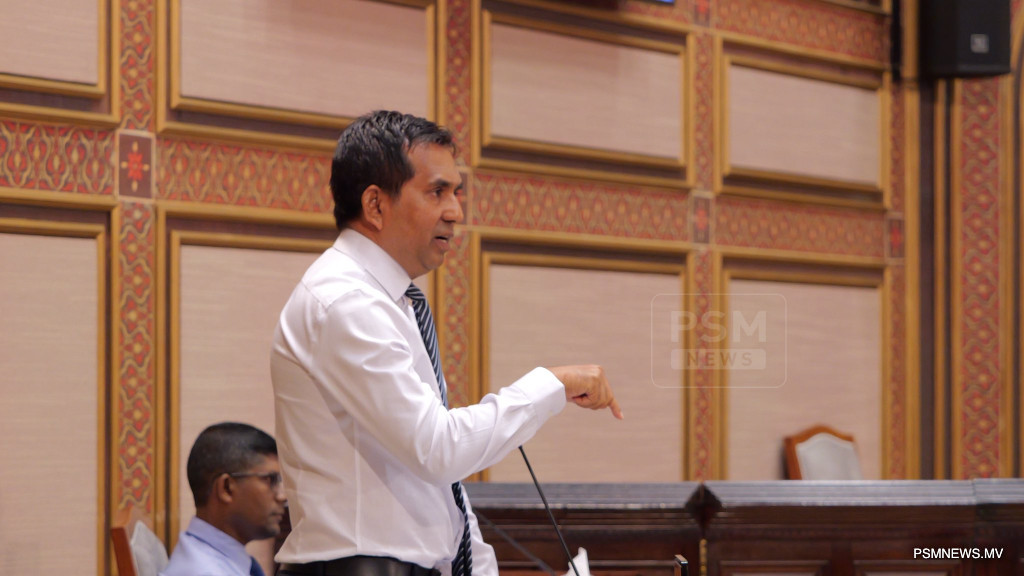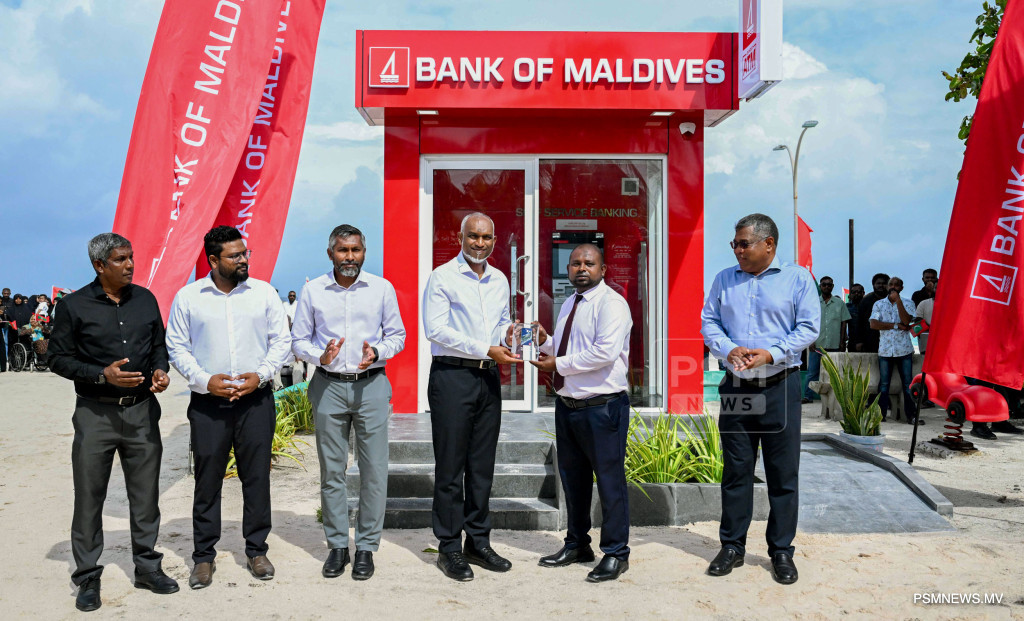
The Minister of Economic Development and Trade, Mohamed Saeed delivered scathing criticism of the previous administration’s fiscal policy, alleging that the former government borrowed a staggering USD 8 billion but utilised the entirety of the debt purely for recurrent, day-to-day expenses rather than for revenue generating investments.
Answering questions from lawmakers during Tuesday’s Parliament sitting, Minister Saeed detailed the blatant economic mismanagement, stressing that the massive borrowing was not channeled into any projects that could generate revenue or contribute to long-term economic growth.
“The previous government borrowed USD 8.1 billion and did not invest in anything that would generate revenue. The debt was used to cover daily expenses or recurrent expenditure,” he explained, noting that the administration continued this unsustainable practice despite repeated warnings from the then-opposition party.
To underline the severity and desperation of the alleged financial decisions, the Minister claimed that vital public infrastructure was used as collateral for the loans.
"The last government has mortgaged every school in Male’. Olympus has been mortgaged. Iskandhar School has been mortgaged and loans have been taken," he asserted, painting a picture of systemic fiscal recklessness that jeopardised public assets.
Minister Saeed also criticised the previous administration’s monetary approach, specifically the printing of USD 518.8 million. He dismissed the former government's official justification—that the money printing was necessary due to economic difficulties caused by the pandemic—by revealing discrepancies in the use of allocated relief funds.
According to the Minister, the state had received USD 564.2 million to cover COVID-related costs but had only spent USD 272.4 million of that relief fund.
"Then where did the rest of the funds go? Why print more money to cover the costs of pandemic? We pleaded them not to print money because we knew it will be extremely damaging," he recounted.
Addressing the efforts now underway to stabilise the national currency and mitigate the financial damage, Minister Saeed explained that the current administration has engineered the passing of a new foreign exchange law, which mandates the exchange of a percentage of tourism dollar revenue to local banks. This move, he said, has already allowed banks the opportunity to increase card limits at various times.
Additionally, Minister Saeed highlighted that facilitating transactions with key trade partners like China and India in their respective currencies is expected to reduce dependence on the U.S. dollar and aid in its eventual depreciation.
Nationwide ATM Expansion Drives Financial Inclusion
Minister Saeed also touched upon the significant economic impact of the nationwide ATM network drive, explaining that daily ATM transactions in the Atolls has now reached 9,300, circulating USD 1.7 million.
The Minister elaborated on the comprehensive expansion of ATM services, an initiative spearheaded by President Dr Mohamed Muizzu and launched by the Bank of Maldives (BML) last November.
The intitiative aims to bring essential banking services closer to communities, addressing a critical need for financial inclusion. Minister Saeed revealed that before 2024, ATMs were available in 72 islands. This year alone, ATMs have been installed in 130 islands, with services now active in a total of 180 islands across the archipelago.
The expansion into rural areas has yielded substantial economic gains, the Minister noted. The ATMs have facilitated 230,000 transactions, bringing a total of USD 13.2 million into the formal banking system. This influx of funds has provided a vital boost to the nation's financial momentum, he added.

Providing a granular view of daily activity, Minister Saeed detailed that BML's ATMs handle 14,000 transactions daily in the capital Male’, circulating USD 5.1 million. In the Atolls, the 9,300 daily transactions contribute USD 1.7 million to the local economies, he explained.
The BML-installed ATMs offer a range of services including cash withdrawals, deposits, and other basic banking functionalities. In a further move to support the vital tourism sector, BML is also actively working to install dollar ATMs in select islands with booming local tourism, catering to the banking needs of both residents and international visitors.
